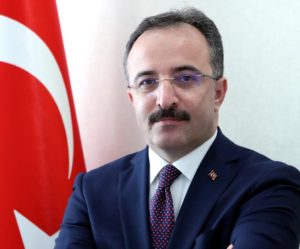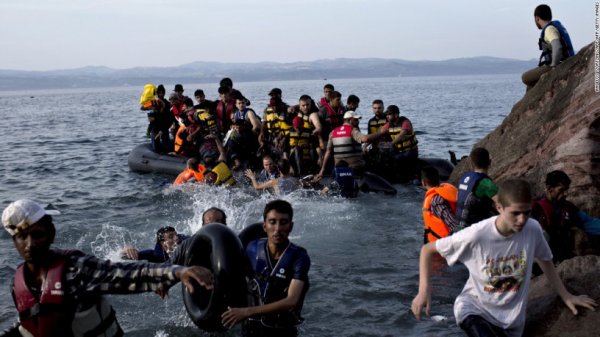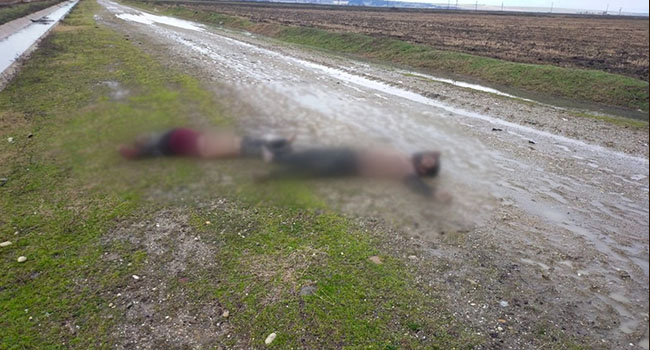Levent Kenez/Stockholm
Turkey and Greece kicked off a new blame game after 19 refugees froze to death on the Turkish-Greek border on Wednesday. While the Turkish side claims that Greek border patrols took the refugees’ valuables and pushed them back to Turkey after stripping them of some of their clothes, the Greeks claimed it was Turkish propaganda and that the refugees never reached Greek territory.
According to a Turkish parliamentary report obtained by Nordic Monitor, Turkish authorities allege that Greek authorities push refugees back in order to avoid an overabundance of migrants as well as bureaucratic and judicial procedures, and that this is done with the knowledge and involvement of the European Border and Coast Guard Agency (Frontex).

Interior Ministry officials made a presentation in December to the Turkish Parliament’s Human Rights Committee and briefed lawmakers on pushbacks and irregular migration. Deputy Interior Minister İsmail Çataklı and Col. Tayfun Sargın, head of the Coast Guard Command’s department responsible for smuggling and organized crime, explained why Greece accelerated the pushbacks after 2020 and evaluated a memorandum signed by Turkey and the European Union.
The European Council and Turkey reached an agreement aimed at stopping the flow of irregular migration via Turkey to Europe on March 18, 2016. According to the joint action plan, all new irregular migrants crossing from Turkey to the Greek islands after March 20, 2016 would be returned to Turkey. For every Syrian returned to Turkey from the Greek islands, another Syrian would be resettled from Turkey to the EU taking into account the United Nations Vulnerability Criteria. Turkey furthermore agreed to accept the rapid return of all migrants not in need of international protection crossing from Turkey into Greece and to take back all irregular migrants intercepted in Turkish waters.

Sargın, in his long presentation, said Greece had amended its Asylum Law on October 31, 2019 to restrict asylum applications and the right of objection in a way that violates the fundamental human rights of migrants. He claimed that the number of migrants who were returned to Turkey by Greece had been extremely low since the adoption of the March 18 agreement.
According to Çataklı, Greece did not fulfill its responsibilities arising from the agreement. “We were going to send a Syrian to Europe in return for every one that Greece returned to us. Greece has been able to send us only 2,319 people so far. Greece did not work its domestic legal system,” he added.
Çataklı also said Turkey had completed the necessary paperwork to resettle more than 15,000 Syrians in a European country during this period in order to demonstrate how quickly Turkey was working.
According to Turkish officials, the March 18 agreement significantly prevented the number of refuges from reaching 1 million in the Aegean Sea. Knowing that they would be sent to Turkey even if they managed to reach the Greek islands dissuaded a significant number of Syrian migrants from crossing to another country at the risk of death.
According to the official figures in the hands of Turkish authorities, two refugees lost their lives in 2020 and eight in 2021 due to pushbacks. Considering that 19 people died on Wednesday alone, the extent of the disaster experienced this week can be understood.
Human rights defenders often criticize Greece for unregistering refugees and pushing them back to Turkey. They also claim that the March 18 agreement, which made provisions for refugees arriving in the Greek islands, did not include any regulations for the land border. As a result, Greek authorities had committed serious human rights violations on the border given the fact that refugees seized on the land border are not included in the agreement. They often assert that non-Syrian migrants are mistreated. It is also known that Turkish citizens, mostly Kurds and Gülenists who were fleeing a witch hunt carried out by the government of Turkish President Recep Tayyip Erdoğan, were also subjected to ill-treatment and jailing when caught in Turkey after pushbacks.
Contrary to interior ministry officials, pushbacks are known to have started long before 2020. A Parliamentary Assembly of the Council of Europe (PACE) report in 2019 urged the member states to protect asylum seekers, refugees and migrants arriving at the borders of Europe and to refrain from any pushbacks, to allow for independent monitoring and to fully investigate all allegations of pushbacks. It called on member states to comply with their international obligations in this regard, in particular those set out in the European Convention on Human Rights concerning the prohibition of collective expulsion and inhuman and degrading treatment as well as the right of access to asylum procedures and the prohibition of refoulement as established in the United Nations Refugee Convention.

PACE has slammed Greece and Bulgaria for the forcible expulsion of refugees and asylum seekers to Turkey in a report that will be debated in Strasbourg on Friday.
The report, drafted by Tineke Strik of the Netherlands, criticized the growing phenomenon of pushback policies and practice in clear violation of the rights of asylum seekers and refugees, including the right to seek asylum and protection against refoulement, which it stated lies at the core of international refugee and human rights law.
Pushbacks and other violent acts appear to be widespread along the border of Bulgaria with Turkey, according to the PACE report. Turkish agencies and organizations report that at least 10,000 individuals are being pushed back collectively from Bulgaria and Greece into Turkey on a monthly basis, it noted.
Other members states such as Spain, Poland, Croatia, Serbia and Italy were also listed among member states where pushback instances were recorded.
The report underlined that there are persistent reports and evidence of inhuman and degrading treatment by member states and their agencies in the framework of those pushbacks through intimidation, taking or destroying migrants’ belongings and even through the use of violence and depriving migrants of food and basic services. The report describes reported cases of pushbacks and makes recommendations devised to stop them.












